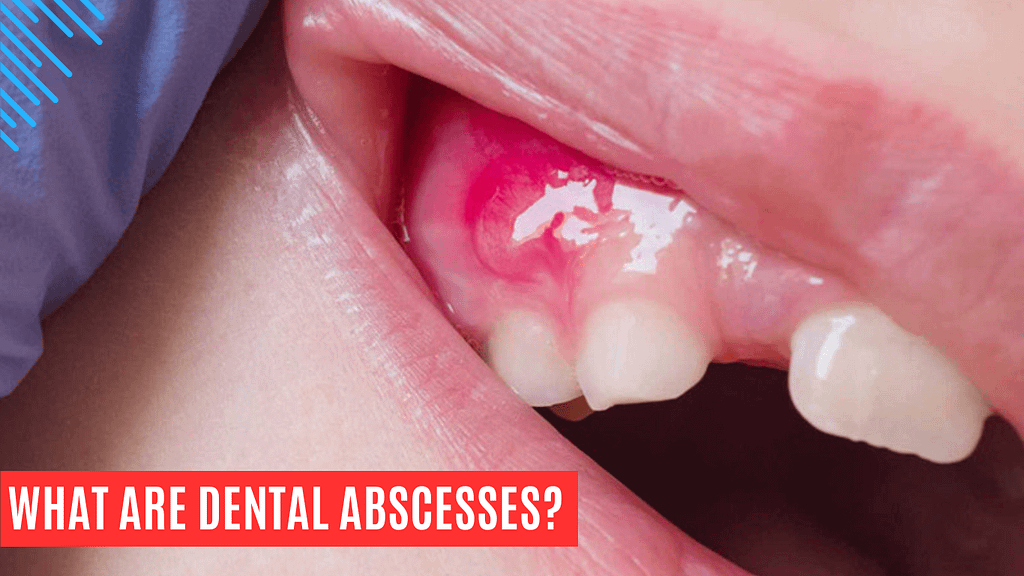Having a tooth infection can be life-threatening as there is a chance that it can spread to other body parts and the bloodstream. If you have signs of a tooth infection, rush to the dentist. Take your time with its treatment, as it complicates several things.
In this blog, we will share more about how long it takes for the tooth infection to spread to other body parts, when you need to consult with a dentist, and much more. So, continue reading this blog and find more information and quick home remedies to kill tooth pain nerves in 3 seconds at home.
Signs Of A Tooth Infection:
According to the American Dental Association, a dental abscess develops when bacteria enter the nerves or soft tissues. It can start from tooth decay, tooth damage, or dental injury.
Some clear signs and symptoms of a dental infection that you must look into include:
- Redness in the mouth
- Intense toothache or gum pain
- Bad taste
- High temperature
- Swollen face
- Sensitivity to hot and cold foods
- Difficulty opening and closing mouth
- Difficulty in chewing food
How Long A Tooth Abscess To Develop?
The abscesses in the mouth start due to tooth decay and develop over several months. They are initiated by the tooth decay process, which is slow and takes time to reach and damage the pulp inside a tooth.
However, the bacteria takes less time to grow and spread in the teeth through chipped or damaged teeth. The abscess is a pus pocket in the tooth that develops slowly and spreads to nearby teeth and gums.
The abscess growth shows evident signs and symptoms that something is wrong. Research shows that tooth infections cause persistent toothaches, which go on for months before seeking urgent dental treatment.
What Factors Lead to Complications After a Tooth Infection?
The implications get worse in the individuals having any underlying medical condition. Moreover, here are the factors that add up to dental infection and impact overall health:
- Patient age
- Malnutrition
- Severity of infection
- Having diabetes
- Being Immunocompromised
- Patients with medical conditions
An abscess of the tooth has type types, which include periodontal and periapical, described as follows:
Periodontal: The infection type supports gums and surrounding bones
Periapical: The type of infection present under the tooth
In addition, there are two primary conditions of an abscess, depending on their severity. Their symptoms include:
Acute dental abscess: When there is abrupt and sharp pain, the abscess type is known as acute.
Chronic dental abscess: Having low-grade pain lingering in the mouth for months is a chronic condition.
Can Tooth Infection Kill You?
During the 1600s, dental infection was listed as the sixth leading cause of death. It reveals that death from a tooth infection is possible but very rare nowadays. So, the most important thing to ponder is to look for the signs of infection and get prompt dental care.
However, some complications can be fatal and must be looked into, such as:
- Sepsis: A condition where the body shows the response to the infection in any part.
- Necrotizing fasciitis: A medical condition that leads to severe infection and death of soft tissues in the human body.
- Mediastinitis is the inflammation of the space between the lungs, known as the mediastinum, that occurs due to the spread of infection.
- Ludwig’s angina: Bacterial infection that affects the mouth floor and underneath the tongue.
- Endocarditis: The inflammation of the heart’s inner lining due to infection.
- Brain abscess: The accumulation of pus in the brain.
- Osteomyelitis: The infection which spreads to the bone tissues.
All such types of infection occur due to the spread from some other body part, such as dental infection. Occurring if these infections or any single type is lethal and can result in death.
How Do You Know If You Have Sepsis?
If the infection spreads to the blood, the condition is known as sepsis. It is a severe condition that can result from a tooth infection. Although the risk of getting sepsis from a tooth infection is low, some signs reveal that you have sepsis.
The major symptoms include a racing heart, fever, chills, low blood pressure and difficulty breathing. The infection in the bloodstream, when left untreated or neglected for a while, results in tissue damage, organ failure, and even death.
Major Tips to Avoid Tooth Infection
The best thing to prevent any tooth issue is to follow a dental regime. If you habitually brush and floss your teeth twice, there is less chance of developing an infection. Moreover, regular dental checkups help with early diagnosis and early detection, which can save your life.
Furthermore, here are a few tips that one must follow to keep their teeth healthy:
- Reduce sugar intake daily.
- Get professional scaling or deep cleaning done after six months.
- Use a toothpaste according to your dental issues.
- Look for the significant problem preventing you from keeping teeth healthy, such as bite size, teeth shape, or any other.
- Consult a dentist as soon as you experience tooth pain or an injury.
- Get dental X-rays done to look for cavities.
- Make sure to get teeth restorative treatments for better dental performance.
- Schedule regular dental visits and checkups.
The Bottom line:
To summarize, dental infection is a severe issue that can cause problems if left unnoticed. It only takes several weeks to months for tooth infections to occur in other body parts. So, visit your dentist if you find any such signs and look for the best feasible option for pus drainage.
FAQs
How do you tell if a tooth infection is killing you?
If you face signs and symptoms such as fever and mouth swelling, it shows something is happening in your mouth. Moreover, if you don’t get the treatment, the signs can get worse, leading to trouble breathing and swallowing, indicating the infection’s spread.
How long can you survive with a tooth infection?
You can survive a tooth infection for only a few days, then it spreads to other body parts. If not treated in time, there are chances of death, even in a few days.
How fast can a tooth infection spread to your brain?
To reach the infection to the brain, it only takes a few weeks or months. However, proper treatment can help people get rid of it in the early stages.
Can you have a tooth infection for years?
Depending on the severity of the infection, it can last from several months to years. Not treating the infection is dangerous not only for teeth but also for other body parts.

